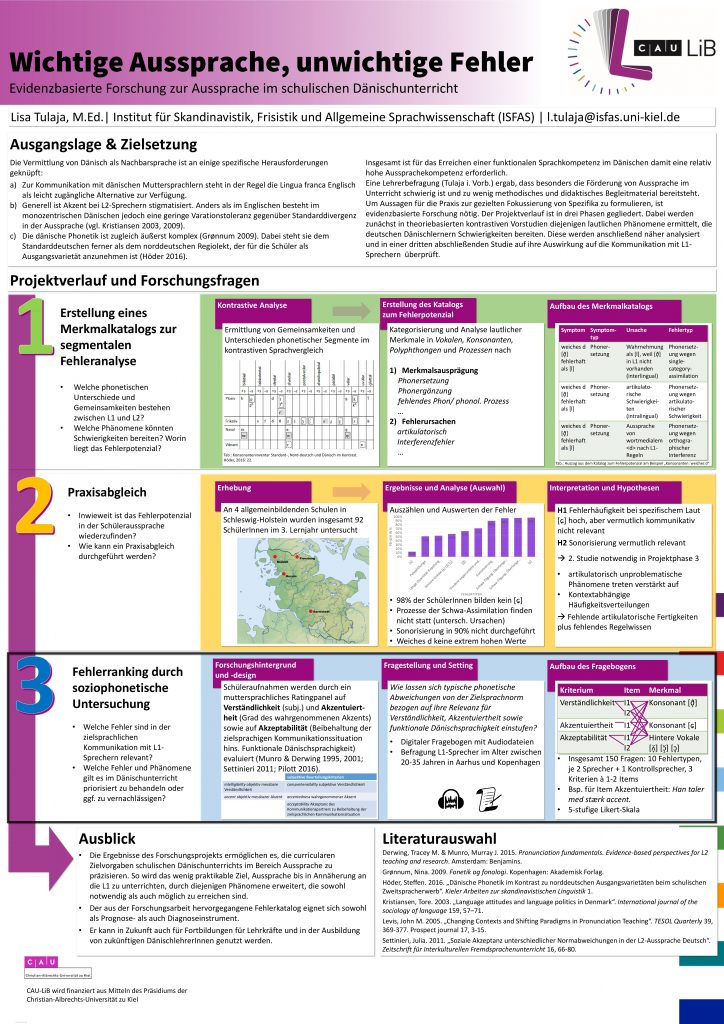Prof. Dr. Steffen Höder (principal investigator)
Lisa Tulaja M.Ed. (researcher)
The project was funded as part as the Lehramtsinitiative CAU-LiB (October 2015–September 2018).

Danish is taught as a foreign language at different levels in public schools in the German federal state of Schleswig-Holstein. In border regions such as Schleswig-Holstein, learning and eventually speaking the language of the neighbouring country is usually seen as facilitating cross-border communication. An additional factor in Schleswig-Holstein is the existence of an autochthonous Danish-speaking minority (cf. the Handlungsplan Sprachenpolitik by the regional government [in German]).
Normally, though, Danish and German speakers won’t have to rely on each others’ competence in the respective neighbour language in order to achieve successful communication, since both Danes and Germans can use other linguistic resources, such as English (or in some cases even German). This implies that Danish classes in school must aim at a level of competence that is sufficient for the learner to be accepted as a competent speaker of Danish by L1 speakers. While learning Danish as a foreign language is not fundamentally different from learning other languages in many respects (e.g. communicative strategies, vocabulary, grammatical knowledge), acquiring an acceptable Danish pronunciation can be quite a challenge, since Danish phonetics is notoriously complex.
Based on previous research on Danish phonetics, second-language acquisition, L2 phonology and error gravity, the project focuses on the following questions:
- Which phonetic/phonological features of Danish are most problematic for learners with (North) German as an L1?
- To what extent do expectable errors actually occur in pupils’ pronunciation of Danish?
- How are different types of phonetic/phonological errors in L2 pronunciation evaluated by L1 speakers of Danish in terms of comprehensibility/intelligibility, accentedness and acceptability?
- What kind of assistance do teachers need in order to improve pupils’ pronunciation?
The concluding workshop for the project (Nordic Research on Accent, Acceptability and Acquisition (NordAc³)) was in March 2019 (Booklet).
